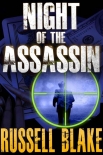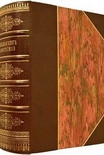The Cutthroat, Clive Cussler [best ereader for manga txt] 📗

- Author: Clive Cussler
Book online «The Cutthroat, Clive Cussler [best ereader for manga txt] 📗». Author Clive Cussler
Mapes considered the prospect. “‘Nerves of steel’ implies some possibility of danger.”
Isaac Bell looked him in the eye, and the actor saw the American’s amiable expression harden perceptibly as he reassured him with a promise. “You will never be out of my sight.”
“When will the curtain rise?”
“You’ve got a busy morning with my tailor. Curtain rises tomorrow evening at eight.”
“Do you remember Nellie Bly?” asked the Cutthroat.
The girl—her name was Dorothy—was silent.
“Famous newspaperwoman? . . . No?”
Dorothy lay on her back beside an empty steel oil drum in the warehouse of a Cleveland refinery. She was wrapped head to toe in his cape. He had left her face showing. Her blue eyes had popped open, staring at a sky she would never see.
“What am I saying? Nellie Bly was famous before you were born.” He glanced again at the girl. Still staring, still silent.
“Beautiful girl. Nellie had a lot of nerve. She got herself locked up in a lunatic asylum once just to report on what it was like to be locked up in a lunatic asylum. She wrote a book about it: Ten Days in a Mad-House. I always wondered—did Nellie worry that her editor would forget to get her out? What if he fell off a train or died in a fire while she was still locked up? . . . But the reason I ask is, Nellie went on to be a wealthy businesswoman. Not only that, she became an inventor. In fact, she invented this astonishing new kind of barrel.”
He slapped the steel drum and it gave a melodious boom.
“That’s right—an easily sealed fifty-five-gallon oil barrel that never rots or leaks and is strong enough to hoist onto ships and railcars and be transported anywhere in the world. John D. Rockefeller is forever in her debt. And so am I. For another ‘perfect crime.’”
He scooped Dorothy into his arms and lowered her into the barrel. He banged on the head and sealed it tight with a simple wrench.
“See, Dorothy? All gone.”
Clocks were striking midnight in London.
Across the street from the wrought-iron-fenced lawns of Lincoln’s Inn, the windows were dark in all three stories of the Lock Museum. Lights out except for a garret dormer in the roof, which told Isaac Bell he had assumed correctly that there would be no hall porter guarding the front door at this late hour. If the porter lived in a servant’s room in the cellar, he had gone to bed, since no lights showed in the tradesman’s entrance under the front steps. But the light in the window garret indicated that Nigel Roberts was home, either awake in his room or, hopefully, falling asleep reading in bed.
Isaac Bell hurried up the front steps and pretended to knock at the door. He held his other hand at waist height, assessing the lock, first with his turning tool, then with a pick. He waited, looked around, and pretended to knock again. With only the gardens across the street, no one could see him from a window. Still, he pantomimed disappointment, descended the steps slowly, and walked around the corner onto Gate Street.
Joel Wallace was waiting inside a two-wheeled hansom cab. The cabby, seated high up behind the passenger box, was an ex–Royal Marine who drove regularly for the Van Dorn field office. His horse was feeding from a nose bag.
“How’s the lock?”
“Brand-new Yale.”
Joel Wallace groaned. “Why don’t you just borrow the thief catcher? I bet Roberts would lend it to you.”
“He’d be happy to help,” Bell agreed. “But if it goes sour, the old boy’s out of his job. And his home.” He took out his watch. “Time. I’ve got twelve-ten.”
Joel Wallace moved his ahead twenty seconds. “Twelve-ten.”
“Bring the cab around the corner at twelve-fifteen.”
“You can’t jimmy the Yale and lift that strongbox in five minutes.”
“If I don’t, I’ll have a bobby wondering why I’m hanging around the Museum’s front steps at midnight.” He jumped out of the cab. “Five minutes. I’ll pass you the box on the garden side. Don’t stop. I’ll catch up at the office.”
Bell hurried around the corner and up the steps. The lock was a standard six-pin, new and well made, probably by an English firm licensed by the Yale company. He reinserted his turning tool, put on light pressure, and worked in his pick. He found the pin that was most out of alignment in its hole—the candidate to be picked up first. He lifted it, which allowed the pressure on his turning tool to rotate the cylinder tube slightly. Then he felt for the next pin made to bind most tightly by the cylinder’s rotation.
He heard footsteps on the sidewalk, the measured tread of a big man in heavy shoes. At this hour in this wealthy district, a firm stride and menacing swagger announced a police constable on patrol.
23
Isaac Bell stood tall and kept working his picks at waist level.
He lifted the third pin, and the fourth. Two to go. But the fifth and sixth were both binding. Rushing to unlock the door before the bobby reached the steps, he had applied too much torque with his turning tool. He eased it slightly, prayed, and got one pin to go up, freeing the cylinder from all but the final pin. The footsteps stepped behind him.
“Good evening, sir.”
The constable’s imperious tone demanded an immediate response. The lack of the deference ordinarily accorded a well-dressed gentleman implied that a housebreaker with a brain in his head would dress the part to blend in with the residents of the neighborhood—wouldn’t he, sir?
The sixth and final pin resisted the pick.
“Good evening, Constable,” Isaac Bell tossed over his shoulder, shielding his hands with his torso.
“Have you business here, sir?”
“No.”
“Then what are you doing?”
The sixth pin finally let Bell lift it. He increased pressure on his turning tool and the Yale clicked open. He palmed his picks, turned the doorknob, and faced the constable. “I am a guest.”
“Seems





Comments (0)